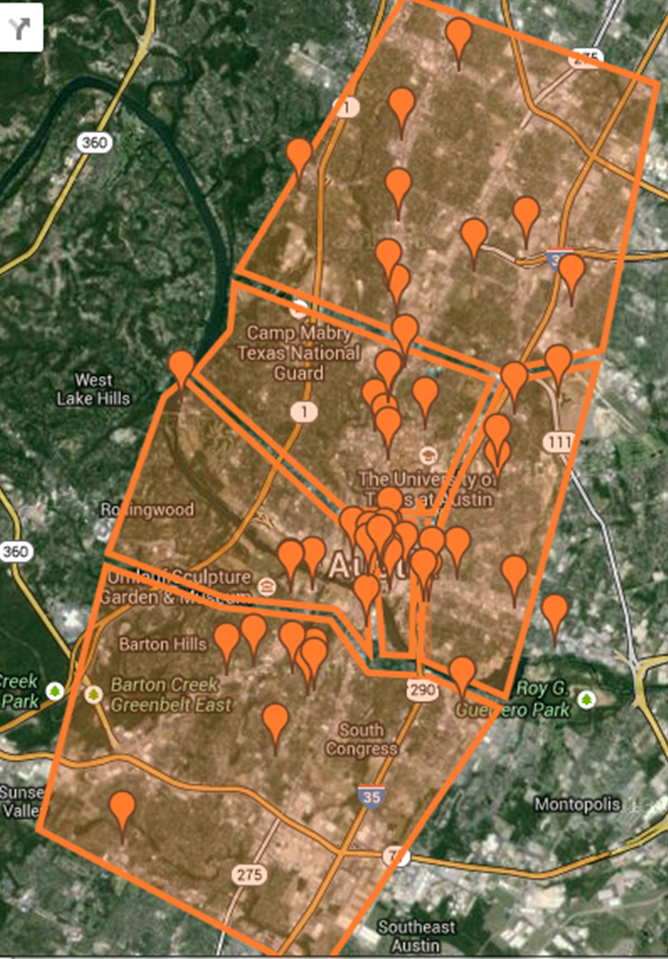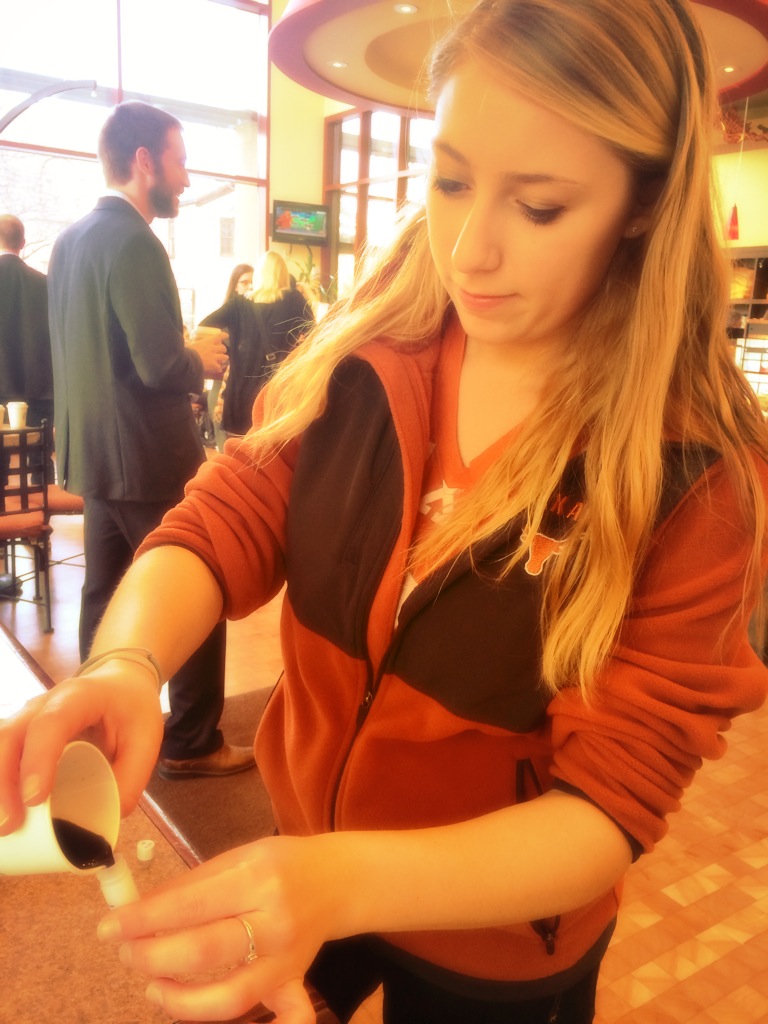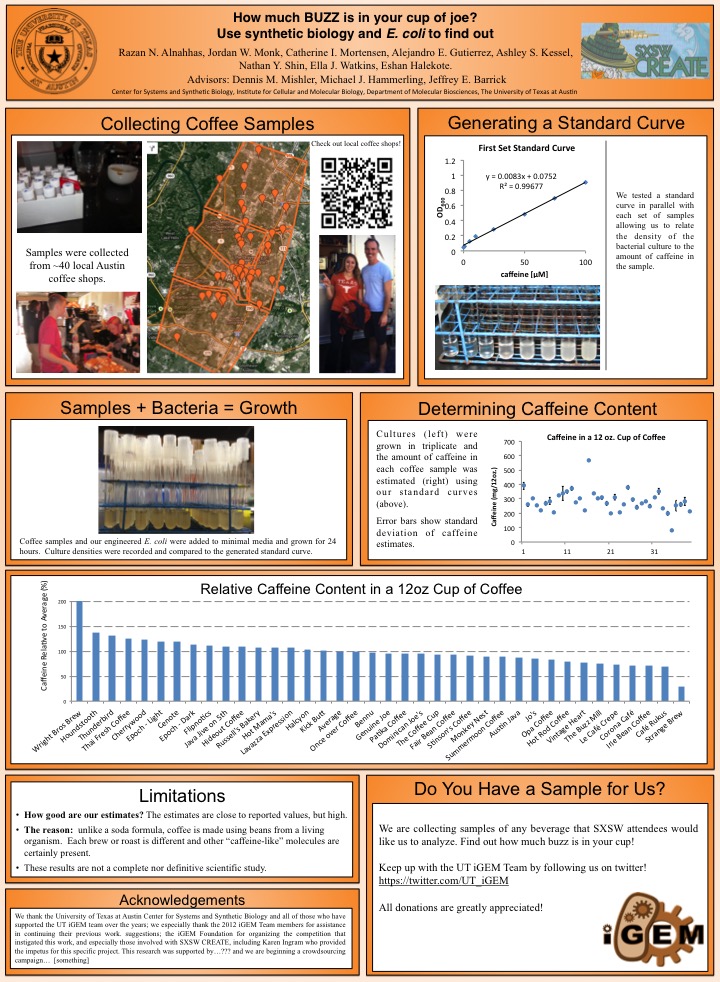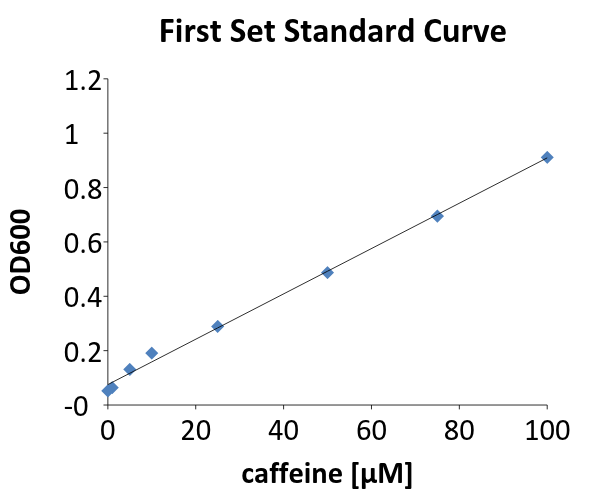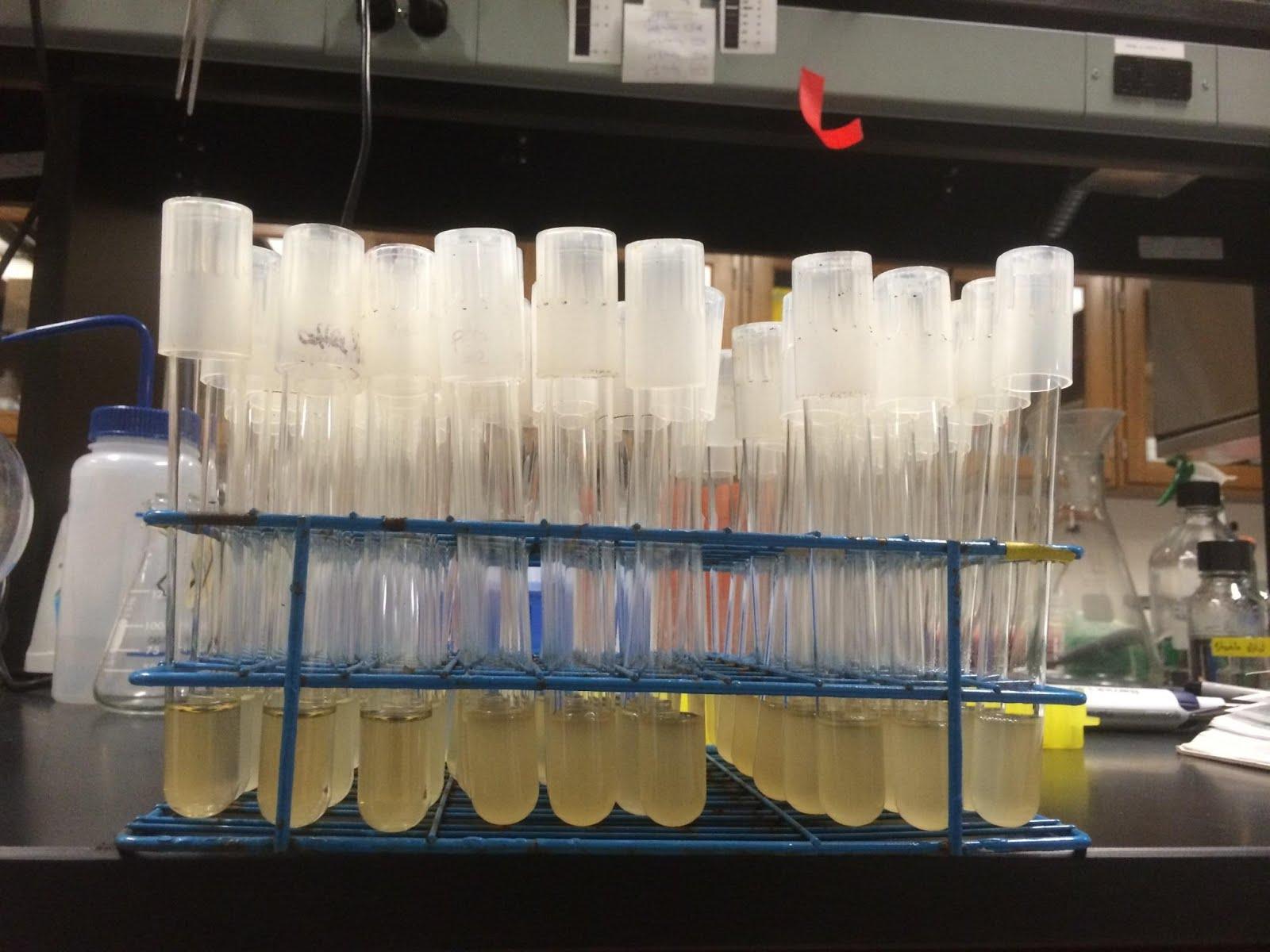Team:Austin Texas/human practices
From 2014.igem.org
(→Caffeinated Coli) |
(→Caffeinated Coli) |
||
| Line 72: | Line 72: | ||
[[file:UT_Austin_Coffee_shops_map.png|200px|thumb|right| [http://www.google.com/maps/d/viewer?mid=zlUDhks6KHxI.ketDvlvg6zis Click here for an interactive map of coffee shops we visited!]]]In 2014, the UT Austin iGEM team was asked to create a presentation for the South By Southwest Create event. There were many relatively new team members, so the team saw the opportunity to not only teach new members essential research techniques, but also saw this as a wonderful opportunity to reach out to the community and raise awareness for the emerging field of synthetic biology. The team decided to revive an old iGEM project, the "Caffeinated coli," to measure the caffeine content of various different brands and types of coffee. The group split up and visited dozens of local Austin coffee shops, collecting samples of their house coffee. We were met with much enthusiasm by the coffee shop owners, who's interest had been peaked when we described our experiment. The samples were taken back to lab, and using a strain of ''E. coli'' previously developed by the 2012 UT Austin iGEM, we employed these ''E. coli'' to assess how much caffeine was present in each cup of coffee. | [[file:UT_Austin_Coffee_shops_map.png|200px|thumb|right| [http://www.google.com/maps/d/viewer?mid=zlUDhks6KHxI.ketDvlvg6zis Click here for an interactive map of coffee shops we visited!]]]In 2014, the UT Austin iGEM team was asked to create a presentation for the South By Southwest Create event. There were many relatively new team members, so the team saw the opportunity to not only teach new members essential research techniques, but also saw this as a wonderful opportunity to reach out to the community and raise awareness for the emerging field of synthetic biology. The team decided to revive an old iGEM project, the "Caffeinated coli," to measure the caffeine content of various different brands and types of coffee. The group split up and visited dozens of local Austin coffee shops, collecting samples of their house coffee. We were met with much enthusiasm by the coffee shop owners, who's interest had been peaked when we described our experiment. The samples were taken back to lab, and using a strain of ''E. coli'' previously developed by the 2012 UT Austin iGEM, we employed these ''E. coli'' to assess how much caffeine was present in each cup of coffee. | ||
| + | |||
| + | [[file:Ellacollectscoffee.JPG|thumb|left| Ella collecting coffee sample from Austin Java]] | ||
| + | |||
Revision as of 00:50, 15 October 2014
|
 "
"

